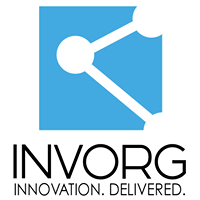Common Myths About Digital Transformation and Not-For-Profit Organizations
We are debunking some of the most common myths about digital transformation and not-for-profit organizations.

Introduction
Not-for-profit organizations provide some of the most critical services in our communities. Their initiatives are typically created to better society and improve the quality of life for people in their communities. Digital transformation can offer these organizations numerous benefits including increased efficiency and better overall service delivery. However, there are many myths about digital transformation and why it won’t work for not-for-profit organizations. Let’s investigate some of the most common myths and see why they aren’t true when it comes to not-for-profit organizations.
Myth 1: Digital transformation is too expensive for not-for-profit organizations
Not-for-profit organizations are often working with tight budgets and may be hesitant to invest in digital transformation initiatives. However, many digital transformation projects can be completed with little to no upfront costs. For example, utilizing cloud-based software solutions can eliminate the need for expensive on-premise hardware and software. There are also ways to strategically invest in digital transformation in order to make the most of whatever budget you have.
Let’s look at an example. A not-for-profit organization that provides after-school programming for children may want to implement a digital registration process in order to save time and resources. They could choose to invest in a tablet with the software they need for each program site which staff can use to register children for the program electronically. The cost of the tablets would be offset by the time and money they save having staff manually register children on paper. It would also help keep registration information stored all in one place so nothing gets lost, making the entire process more effective and efficient.
Myth 2: Digital transformation is too complicated for not-for-profit organizations
Digital transformation can be a daunting concept, but it doesn’t have to be overly complicated. Not-for-profit organizations can start small and gradually implement more changes as they become comfortable. For example, an organization might start by using a digital platform to keep consolidated and organized. Then they could move on to automating tasks like scheduling and email communications. Digital transformation doesn’t have to happen all at once, it can be a gradual process.
The most important thing is that whatever changes are made, help the organization achieve their overarching organizational goals and objectives. If they don’t help the organization achieve their goals the transformation will not be successful, and anything invested could be wasted. The key is to start small and build from there. By taking baby steps, not-for-profit organizations can successfully implement digital transformation without feeling overwhelmed while simultaneously achieving their organizational goals and objectives.
Myth 3: Digital transformation is only for large not-for-profit organizations
Digital transformation can be beneficial for all sizes of not-for-profit organizations. It’s true that large organizations may have more resources to invest in digital transformation, but that doesn’t mean smaller organizations can’t reap the same benefits. In fact, small and mid-sized not-for-profit organizations can often benefit the same amount, if not more, than larger not-for-profit organizations.
Digital transformation can help small and mid-sized not-for-profit organizations level the playing field. For example, a smaller organization may not have the same resources as a larger one when it comes to things like marketing and fundraising. However, if they utilize digital tools and platforms, they can compensate for their size and reach a larger audience. In today’s digital world, size doesn’t matter as much as it used to. Digital transformation can help even the smallest not-for-profit organization compete with the biggest of organizations.
Myth 4: Digital transformation is only for technology companies
Not-for-profit organizations are often hesitant to embrace digital transformation because they are under the impression that digital transformation is only for tech companies. This couldn’t be further from the truth. Digital transformation can benefit any type of organization, including not-for-profit organizations.
Not-for-profit organizations often have a lot of data and information to manage. Digital transformation can help them manage this data more effectively and efficiently. For example, an organization might use a customer relationship management system to track donor information and donations. This would allow them to better manage their donor data and cultivate relationships with their donors. Digital transformation can help not-for-profit organizations in a variety of ways, not just managing data. It can help them with things like marketing, fundraising, and overall efficiency. Digital transformation is for every organization, including not-for-profit organizations.
Conclusion
Digital transformation is a hot topic, but there are a lot of myths surrounding it. Hopefully, this article has helped dispel some of those myths. Digital transformation can be beneficial for all types of organizations, including not-for-profit organizations. Not-for-profit organizations can use digital transformation to manage data more effectively, reach a larger audience, and improve their overall operations.
INVORG is dedicated to helping not-for-profit organizations of all sizes reach their true potential by embracing digital transformation. We have years of experience helping not-for-profit organizations embark on their digital transformation journey. We can help by offering trusted advice and help you find digital solutions that help you achieve your organizational goals and objectives. To learn more about how INVORG can help your organization embrace digital transformation, visit www.invorg.com today for more information.
About the authors:
Hannah Hillier

Hannah is a professional content creator and writer. After graduation from the Public Relations program at Cambrian College, Hannah has gone on to start a successful freelance writing career. She is passionate about bringing words to life in a way that makes complicated topics more approachable. From website content to full articles, Hannah loves to find ways to communicate with any audience effectively. She currently lives and works in Sudbury Ontario.
Joseph Edward

Joseph founded INVORG focusing on a client-centric service delivery platform for innovating local organizations, not-for-profits, home and community support organizations, and small to medium-sized businesses. Joseph holds a Chief Information Officer Certification from Carnegie Melon University, USA, and from the US General Services Administration. He is an IT veteran with over 20 years of leadership in technology, including four years as CTO for the city of London.
